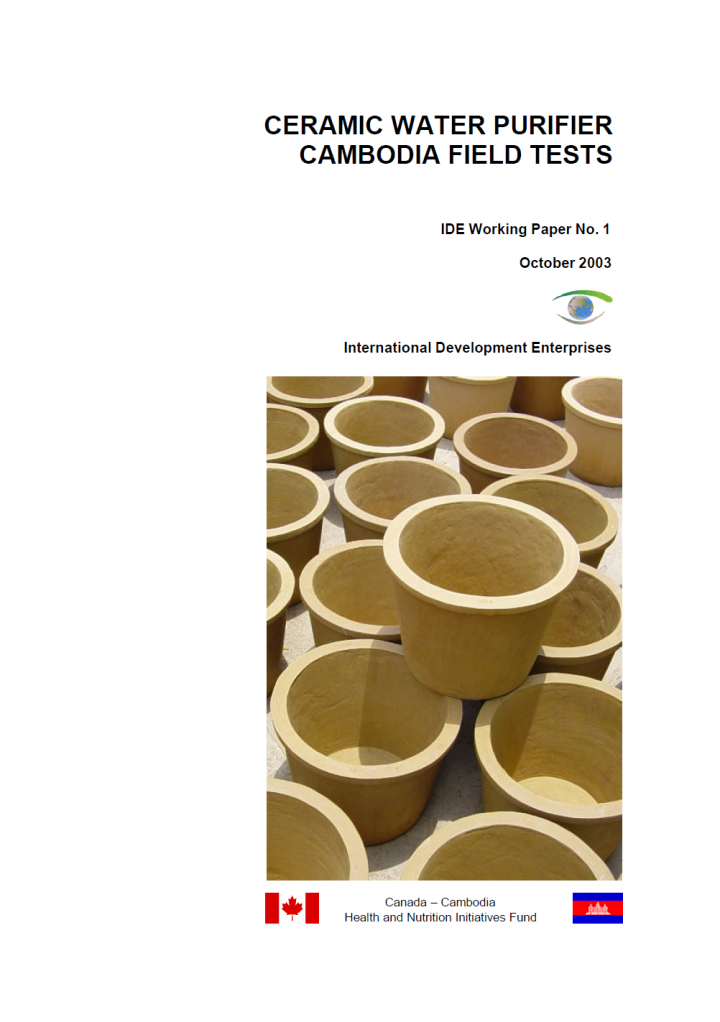Ceramic Water Purifier Cambodia Field Tests IDE Working Paper No. 1 Roberts, M. (2003)
This report summarizes results from a year-long pilot project in Cambodia to test the Ceramic Water Purifier, a low-cost household water treatment technology that removes microbiological contamination at the point of use. The pilot project was conducted by International Development Enterprises (IDE) with financial assistance from the Health and Nutrition Initiatives Fund supported by the Canadian International Development Agency (CIDA).
The Ceramic Water Purifier (CWP) consists of a porous, pot-shaped filter element made of kiln-fired clay and impregnated with colloidal silver. The ceramic filter element is set in a plastic receptacle tank with a lid and a spigot. Raw water is poured into the filter element and seeps through the clay producing potable water at a rate of 2 to 3 litres per hour. The filter element holds approximately 10 litres, allowing a family to produce 20 to 30 litres of water per day with two to three fillings. Monthly maintenance consists of scrubbing the ceramic filter element to unclog pores and washing the receptacle tank and spigot to prevent bacterial growth. The current cost of the CWP is approximately $7.50 for a complete unit (including manufacturer and retailer profit but not including transportation) and approximately $4.50 for the filter element alone, which needs to be replaced about once every two to three years.
Bibliographic information
Roberts, M. (2003). Ceramic Water Purifier Cambodia Field Tests IDE Working Paper No. 1 International Development Enterprises
Filter / Tags
Politicians and local decision makersPractitionersEnglishWater (irrigation, process, other)

